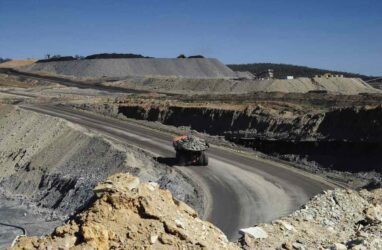The EU should allow its member states to amplify state aid as a response to the impacts of climate change on farmers' businesses, according to most of the bloc's agriculture ministers.
A spate of strong compliance demand pushed RGGI allowance (RGA) prices to new record levels last week, traders said, as the market notched its highest weekly volumes of 2024.
Year in, year out, there's a good chance someone in politics has suggested nuclear power as an answer to Australia's energy problems. Guardian Australia's Matilda Boseley explains why. Modern-day nuclear energy is climate friendly compared with coal and gas. But going nuclear isn't practical for Australia – and it's an idea that's more than likely coming directly from the Coalition's 'delaying action on climate change' handbook
Continue reading...
European Commission President Ursula von der Leyen sought to frame climate action and economic competitiveness as inextricably linked, in a debate on Monday with rival candidates for the EU executive body's next leader.
It shouldn’t take sustained public outrage to stop environmentally destructive projects. Nature positive offers us a way forward.
Peter Burnett, Honorary Associate Professor, ANU College of Law, Australian National University
Licensed as Creative Commons – attribution, no derivatives.
Gold Standard has published clarifications and procedural revisions to boost its chances of supplying voluntary carbon credits for Phase 1 of CORSIA, the UN international aviation offsetting scheme.
Grim news about the Rimba Raya REDD project last week, as well as signs that corporates are focusing on cheap voluntary carbon credits, undermined a more upbeat tone for the market, fuelled by decent liquidity and stronger buying interest.
One of the world’s poorest, most indebted, and most climate-vulnerable countries is turning to carbon markets to secure foreign exchange, as countries prepare to debate a new climate finance target amid crushing debt burdens at the COP29 UN climate conference this autumn.
The world’s largest business association has written to the European Commission’s director general for taxation and customs union to call attention to the “severe” challenges companies have faced in complying with the first reporting period of the EU's Carbon Border Adjustment Mechanism (CBAM).
The rate of decarbonisation across UK businesses decelerated significantly last year, posing a potential setback to achieving net zero goals, finds a new report.
EU steel association Eurofer has lowered its 2024 consumption forecast for the 27-nation bloc, citing worsening geopolitical tensions, growing economic uncertainty, high energy prices, inflation, and interest rates as factors that are adversely affecting demand.
The European Commission has called on two EU states to raise their climate ambitions in line with the agreed targets for 2030, in an assessment of the draft updated National Energy and Climate Plans (NECPs) published on Friday.
Ministers from the G7 nations agreed on Monday to shut down coal plants by 2035, British Minister for Renewable and Nuclear Energy Andrew Bowie said following a meeting in Italy.
The Scottish government's collapse on the heels of a shelved emission target highlights the need for policymakers to back their targets with concrete action in the near term - or risk losing public backing both from supporters and opponents of climate action, according to analysts.
Nearly half of countries' policy pledges for nature made in the National Biodiversity Strategies and Actions Plans (NBSAPs) before 2020 were not supported by evidence of actions taken by governments, a paper has revealed, sounding the alarm over the reporting gaps ahead of this year's COP16 UN biodiversity summit.
The Biodiversity Credits Alliance (BCA) on Monday released an issue paper delineating the process of developing a review mechanism for the emerging biodiversity credit market in a bid to quell concerns over nature risks related to credited projects.
European carbon prices slumped on Monday morning in line with weakening energy markets, as warmer weather and a predicted rise in renewable power generation raised the prospect of reduced demand for thermal ouput.
Taxing the domestic extraction of coal, oil, and gas in the world's richest economies could raise as much as $720 billion by 2030 to help with climate adaptation in vulnerable nations, by way of the Loss and Damage Fund, finds a report backed by dozens of climate organisations.
Pages




